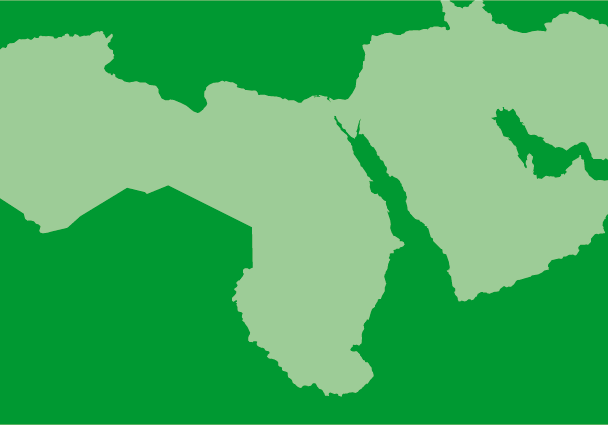The ICJ calls for the convictions of Abdulrahman Al-Subaihi, Bandar Al-Nogithan and Abdulrahman Al-Rumaih, three prominent Saudi lawyers, to be quashed and for the Saudi authorities to end their sustained crackdown on lawyers and human rights defenders.
The ICJ also urges Saudi Arabia to ensure that the framework relating to the legal profession is reformed in line with international standards safeguarding the role and independence of the legal profession.
The three lawyers were convicted on 27 October 2014 by the Specialized Criminal Court of Riyadh, an exceptional Court established in 2008 to try terrorism-related cases.
Two of the lawyers were sentenced to five years’ imprisonment and a seven year travel ban.
The other lawyer was sentenced to eight years’ imprisonment and a ten year travel ban.
The sentences also included a prohibition on appearing in the media and using social media tools.
The three lawyers were found guilty of “disobeying the ruler”, “violating judicial integrity”, “contempt of courts and judicial independence” and, under article 6 of the 2007 Cybercrime law, “producing, preparing, sending or storing material that could endanger public order, religious values or public morals”.
The ICJ believes that both the charges and convictions of the three lawyers stem from the legitimate exercise of their right to freedom of opinion and expression, including by using social media to express their views on the judicial proceedings that many lawyers have been subjected to for criticizing the Ministry of Justice, as well as the failure of the Saudi authorities to reform the judiciary, including the process of selecting and appointing judges.
International standards clarify that, lawyers, like other citizens, have the right to take part in public discussion, including on matters pertaining to the rule of law, the administration of justice and the protection of human rights.
“The convictions of the three lawyers violate their right to freedom of expression and must be quashed. The Saudi authorities must put an immediate end to the ongoing crackdown on human rights defenders, lawyers and political activists,” said Said Benarbia, Director of the ICJ MENA Programme. “The very nature of the charges and sentences are a stark example of how the Saudi authorities have been using the judicial system, including exceptional courts, to suppress peaceful dissent and calls for reform in Saudi Arabia.”
These convictions are the culmination of a long process of intimidation and harassment by the Saudi authorities against the three lawyers.
In June 2014, the First Instance Committee, a legal panel within the Ministry of Culture competent to review “offences of electronic or audio visual publications”, imposed a fine of more than one million Saudi Rials on the three lawyers for criticizing the judiciary and the Minster of Justice on social media.
On the same grounds, the three lawyers had their licences to practice law revoked by the disciplinary board in July.
The members of the disciplinary board are chosen by the Ministry of Justice, which the ICJ thus considers fails to meet the requirements of independence and impartiality as set forth by international standards, which aim to safeguard the independence of lawyers.
The ICJ believes that the proceedings against the lawyers are not only based on invalid grounds but that the procedures for the governance and discipline of lawyers also do not comply with international standards.
“The Saudi Code of Law Practice does not guarantee the independence of the legal profession,” said Matt Pollard, Head of the ICJ’s Centre for the Independence of Judges and Lawyers. “To the contrary, it subjects all lawyers to the effective control of the Minister of Justice.”
Under the Code, the Minister of Justice, among other things, grants lawyers the licence to practice (Article 7) and initiates disciplinary proceedings against lawyers, as well as choosing the members of the boards adjudicating disciplinary proceedings against lawyers.
The Code does not provide for the establishment of a self-governing professional association to represent the interests of lawyers and defend the independence and integrity of the legal profession.
“The Code of Legal Practice must be reformed, in consultation with the legal profession itself and in line with international standards,” Pollard added. “Saudi law must ensure that the legal profession is independent and self-governing, and that lawyers are able to carry out their professional duties without interference from the executive, such as through arbitrary disciplinary or criminal proceedings, similar to the proceedings against Abdulrahman Al-Subaihi, Bandar Al-Nogithan and Abdulrahman Al-Rumaih.”





